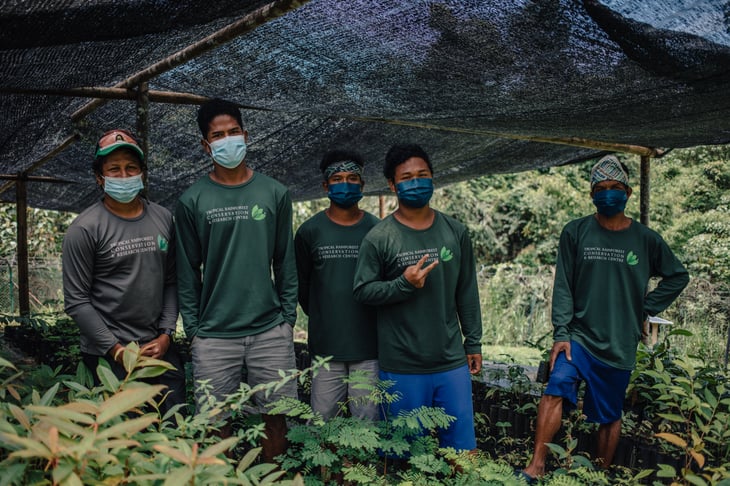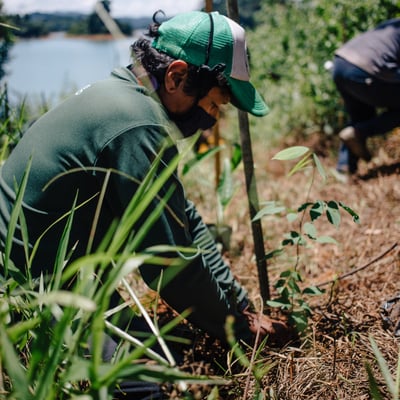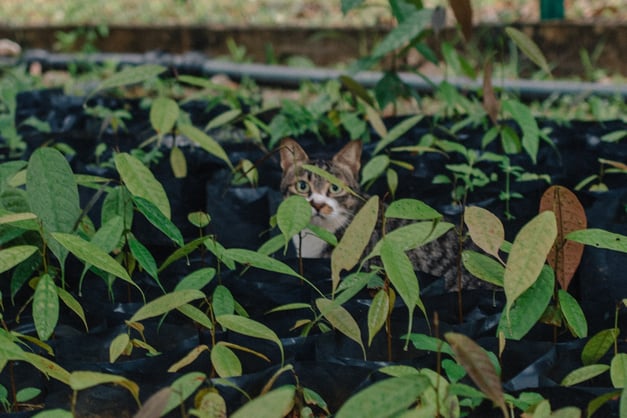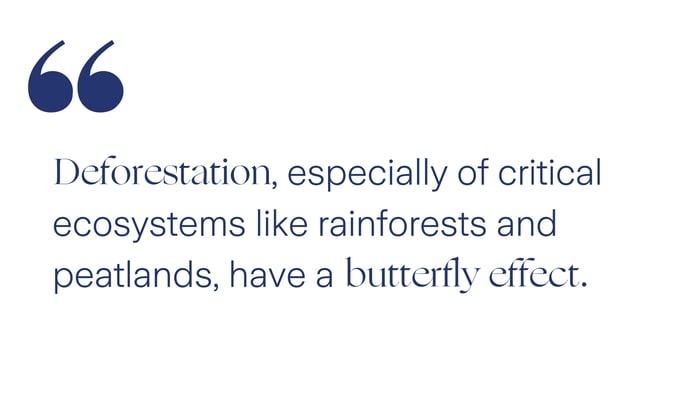A Conversation with Dr Dzaeman Dzulkifli
ArticleOctober 23, 2022
Dr. Dzaeman Dzulkifli has dedicated his career to safeguarding tropical rainforests. As an ecologist and the executive director of Tropical Rainforest Conservation and Research Centre (TRCRC), Dzaeman drives his team to develop environmental and sustainable strategies to mitigate climate change. We meet Dzaeman, who received his PhD from the University of Zurich, for a conversation about climate change and his vision for bringing about a brighter and more positive future for our rainforests.
As the executive director of TRCRC, what does a typical day at work look like for you?
Dr. Dzaeman: There is no such thing as a typical day at work for me. I try to get outside as much as I can, as fieldwork is the most rewarding part of the job. Some days I could be in stakeholder meetings or corporate engagements, and others I could be deep in the field, working on seed collections or developing tree planting sites. Our work can be quite seasonal, and we must be flexible to follow nature’s timing.
What are some of the main challenges you face being in this field?
Dr. Dzaeman: Tree planting is far more than just putting a tree into the ground. There is a lot of preparation involved, often 5-7 years of work, from just preparing the nursery stock and managing it as the seedlings grow. There are also site surveys, preparation, permits, and ensuring the permanence of a planting site. Nature does not care much for KPIs, financial quarters or reporting deadlines.

Dr. Dzaeman with several of his nursery team members. Photo credit: TRCRC
Dr. Dzaeman: With climate change, extreme and unpredictable weather is getting harder to manage, and as habitat loss rages on, we may see more human-wildlife conflict as animals struggle to exist in smaller habitats. These are all challenges that we must try our best to prepare for, as well as for those we cannot predict. As you may be aware, preparing for so many scenarios can be taxing, but we have a good team who are always ready to rise to the challenge.
What is your take on the effects of climate change?
Dr. Dzaeman: Climate change is not “coming” - it is already here. Erratic weather, extreme heat and floods are only going to get worse as we progress along this pathway, and what we need now is decisive action for climate change mitigation.

What is your take on the effects of climate change?
Dr. Dzaeman: Climate change is not “coming” - it is already here. Erratic weather, extreme heat and floods are only going to get worse as we progress along this pathway, and what we need now is decisive action for climate change mitigation.

Tree planting is "far more than just putting a tree on the ground." Photo credit: TRCRC
The future is in our hands - we have the power and responsibility to bring about change to create a brighter and more positive future. We must be willing to put in hard work and make a real change to our priorities. The environment must be at the forefront of financial, political, and socioeconomic discussions. We can no longer afford to take for granted everything that nature provides for us, because if we do, nature will no longer be able to support human life.
Why should people care about rainforests and take the initiative to learn more about them?
Dr. Dzaeman: Tropical rainforests significantly impact global weather patterns, with effects that stretch far beyond their home countries. Deforestation, especially of critical ecosystems like rainforests and peatlands, have a butterfly effect. This means deforestation may lead to worse effects in the future, such as biodiversity loss.
Here in Southeast Asia, we have the added complication of having the highest relative rate of deforestation when compared with other tropical regions, while also housing a huge proportion of the world’s biodiversity. We need biodiversity for a myriad of reasons, but suffice to say that it is extremely important, and a lot of it is here in our rainforests.
On an individual level, I think people should learn more about rainforests because it’s good for them as it has positive impact on your health too!
One of TRCRC’s main focus is on dipterocarps. Do you have a favorite dipterocarp?
Dr. Dzaeman: Shorea faguetiana is an individual of this species in Danum Valley, Sabah holds the record for world's tallest tropical tree at 100.8 m tall. This species however has caused me a lot of heartache.
Why is that?
Dr. Dzaeman: It takes a 10-hour round trip by foot to reach this particular tree and upon arrival I was left devastated as I was not able to find a single viable seed. We later learnt that they were heavily predated on. We then had to heavily guard them by making the sowing beds climb-proof and cage up these precious seeds from predation. I also ended up deploying my pet cats into service to protect them from rodents in our remote field sites. My cats are still working hard over at our nursery!

"My cats are still working hard over at our nursery!" Photo credit: TRCRC

How can the average person help create a brighter future for our trees and planet?
Dr. Dzaeman: Change starts at the individual level. Find what you’re passionate about, whatever that may be. These can be simple steps like riding a bike or carpooling to work, walking where possible, buying local and seasonal foods, and switching off appliances and devices when not in use. You can also volunteer for causes you are passionate about, such as rainforest conservation or beach cleanups. There are so many components to climate change mitigation, and we can all play a role, no matter how small.
Learn more about Zurich Cares, Zurich and TRCRC's forest restoration initiative at Merisuli, Lahad Datu, Sabah.
